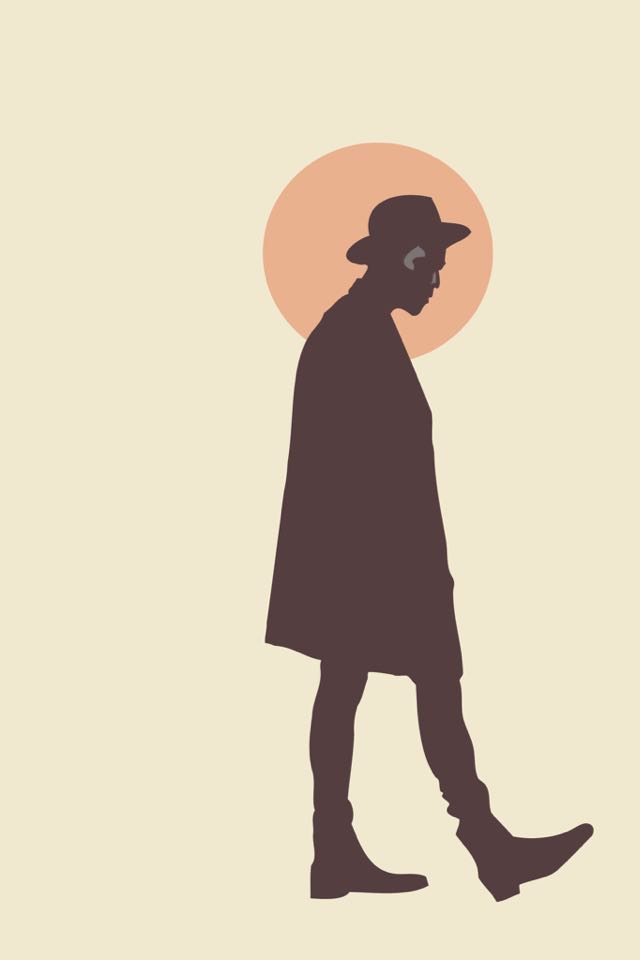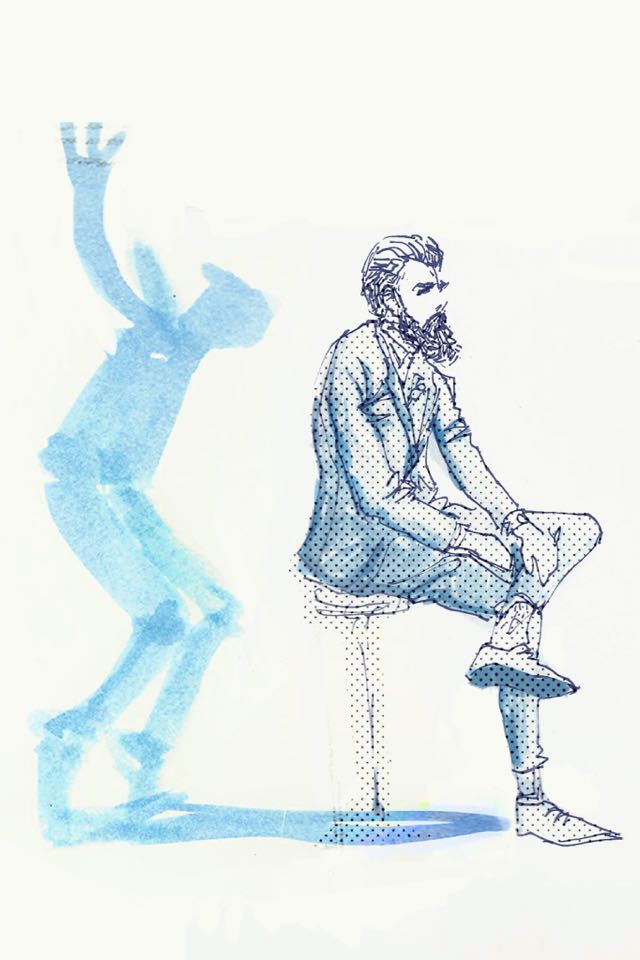An Interview with Taylor Campbell
— feature
Firstly, could you talk about your journey to founding THIS. magazine; were the arts a thing you’d always been drawn to, or was there a specific catalyst that occurred?
CampbellYou’ll Iaugh. I started THIS. because [PANK] wouldn’t publish me. My goal was to launch a magazine that would become so illustrious and selective that I could eventually publish myself in it, alongside my favorite writers.

The other reason I started THIS. is because I was tired of reading the same kind of writing everywhere else. This is something my brownest friends understand when I say it. I wanted to make a place for writers who looked like me, or at least, looked less like the writers everybody else was publishing. I also wanted to make a place for writing I hadn’t read before, that unsettled me or overwhelmed me. I founded my magazine because The Offing wasn’t a thing at the time and Saeed Jones hadn’t started talking publicly about launching a lit mag at Buzzfeed.
This is an indictment, perhaps, of the online lit scene, but it is also a commentary on the originality of writers with whom I had been working at a smaller, more amateur student publication. Ultimately, I left that mag and founded THIS. to facilitate access to fresh voices, experimental writing and arresting art.
wildnessYou’ve mentioned previously that you want submissions to elicit two things from your readers: firstly, that the work “should comfort the afflicted and afflict the comfortable,” and secondly, that the work should feel necessary, not only to the reader, but also to its creator (alluding to the necessity of the work as expressed by Ushio Shinohara in Cutie and the Boxer). Why are these two things so important in your view?
CampbellMy view of what constitutes “good” art is probably unconventional, but THIS. is also my magazine. That is to say, I (and a few others) get to be god. And we of the godhead agree art should comfort the afflicted and afflict the comfortable, because isn’t this the most noble function art can serve? I ask this question rhetorically, of course, because it doesn’t actually matter what anyone except us believes. THIS. is ours.
Toni Cade Bambara said, “The role of the artist is to make the revolution irresistible.” I’m not Robin Hood, but I do think there’s something revolutionary about “reparatory art”—the sort that affords succor to the afflicted and declines to validate the comfortable. My conception of art’s function is profoundly political, but so is my very existence as a black person. This is something I cannot control, and it informs my assessment of whether a piece or an illustration is necessary, at least in our magazine.
wildness
With each issue of THIS. you feature beautifully crafted artwork alongside each piece, how important to you is the duality created between the art and written word?
CampbellI have elected to make my home in a community of artists. It’s only natural that I would invite them into my process by asking them to add their layer of interpretation to written pieces. Our illustrators are critical to THIS. because they construct a visual theme and aesthetic for each issue, and that theme becomes the sole unifying quality among a disparate collection of essays, poems and stories.
wildness
In another article, you mention the beauty in the way A Different World depicted its characters, as just being themselves. You’ve cited this as one of the inspirations behind founding THIS., but more specifically for publishing Issue BLK—a desire to represent the diversity not only between races, but also within them. Do you feel you’ve succeeded in this goal?
CampbellWe’re succeeding. We’re certainly not finished. And I think we’ll have failed if we begin to tell ourselves we’ve succeeded, because suggesting as much is to suggest that there is a finite number of stories we can tell about ourselves as persons of color. The whole point of Issue BLK, beyond simply creating space for black art to be, was to demonstrate the dynamic diversity among us. And I think we managed to represent some of that diversity, but we also have the opportunity to represent much more of it.
wildness
Related to this, are you happy with the level of discussion of inclusion within the literary community?
CampbellThe level of discussion doesn’t actually matter to me, of course. The inclusion matters. Sure, talk of inclusion piques my curiosity and it intrigues me, but I can’t really report some measure of happiness until the literary community stops talking and starts actively including more folks.
That sounds more snarky than it should. The problem—and it’s not actually a problem at all—is that I’m embedded in more inclusive segments of the literary community. Segments that exist because of the exclusiveness of the broader literary community. So in my mind, there’s no reason to throw a block party yet.
wildness
With THIS. you have created an environment that welcomes different voices, as well as experimental form; how important do you feel it is to nurture this feeling of freshness? How do you compile each issue to ensure it provokes this sensation?
Campbell
I thought it was important enough to stake my magazine on it. Freshness is a prerequisite for the material we publish, I mean. And we do this thing where we don’t set deadlines for issues—they come out when they’re done. Is this an industry best practice? Nah. And from a reader’s standpoint, it’s a little disheartening. But it’s also really rewarding.
We don’t publish until we have material that seems imaginative or experimental in a way we don’t see too often. We publish when we have stuff we think our readers won’t be inclined to skim. Submissions of this sort tend to arrive organically, but we also occasionally solicit work from writers personally if we really like their stuff.
wildness
How important is it to you to immerse yourself in the greater creative community?
CampbellEh. After answering the question about inclusion in the literary community, I’m not sure how to answer this. It’s obviously important to me to be embedded among creatives—that proximity is conducive to my own creativity as a curator and an editor. The folks in my web inspire and empower me. But we also aren’t, per se, members of the “greater creative community.” And we’re not in a hurry to be, either.
wildness
Linked to this, how do your friends and family view your work with THIS.?
CampbellMany of them don’t know about THIS. Those that do, love it—my mother raves.
wildness
Knowing how much effort goes into producing a journal, we’d love to know what a typical day looks like for you? Do you have any particular practices or routines you adhere to?
CampbellI’m a stay-at-home dad. I also work from home as a digital consultant. To say that THIS. is anything more than an occasional—look, I’ve invented the noun cousin of periodical—would be disingenuous. My typical day involves making eggs for my 16-month-old, catching up on an ungodly number of emails while she watches old school Sesame Street over breakfast, going for a walk to the playground to get some exercise and sunshine, tackling some work while she plays with her blocks or her doll Cinnamon, putting her down for a nap with some coconut milk, working while she sleeps, making rice when she wakes up, working while she eats, et cetera. Around five or six o’clock, my wife walks in the door and we spend some time together, eat dinner. Then it’s bathtime. Bedtime. By nine o’clock, I sit down and do some reading. Or more work. Usually more work.
Every once in a while, on one of these nights, I read something I love or I stumble across a piece of art that stuns me. I reach out and invite that writer to submit or that artist to collaborate.
Our entire squad will vouch that THIS. is a product of disparate, dark AM hours that should have been spent sleeping. But we’re artists ourselves. And THIS. is our public diary of literature and art that keeps us up at night.
wildness
Who, or what, are you reading at the moment? Who would you recommend?
CampbellSafia Elhillo and Hanif Abdurraqib. I featured them both in THIS., and I would feature them again in every issue I ever publish if I could. Period.
Read more from Issue No. 6 or share on Twitter.